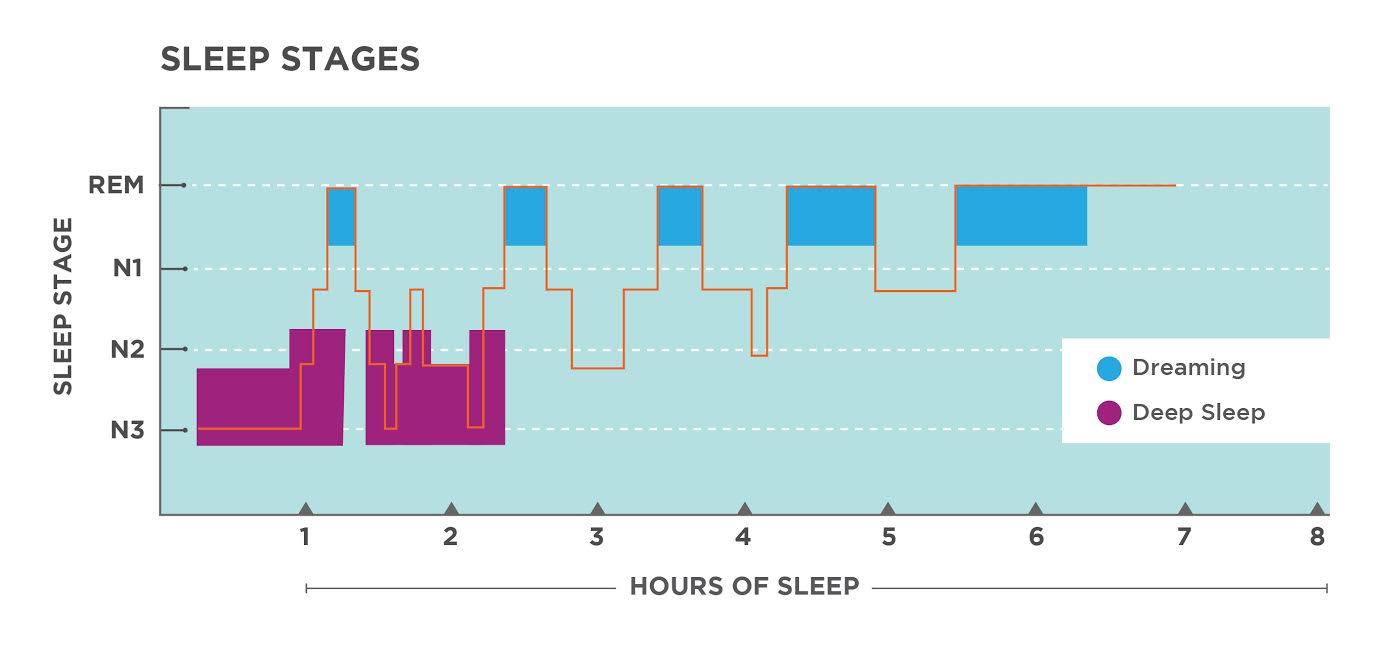 During menopause disturbed sleep and poor sleep quality can be a huge problem. Swinging oestrogen levels can cause night sweats, heat intolerance, insomnia and occasionally nightmares.
During menopause disturbed sleep and poor sleep quality can be a huge problem. Swinging oestrogen levels can cause night sweats, heat intolerance, insomnia and occasionally nightmares.
Difficulty falling asleep, or falling into a deep sleep quickly only to be wide awake a few hours later - or intermittent waking throughout the night - often due to night sweats - are typical experiences during menopause. Lack of sleep can play havoc with our wellbeing, and quickly lead to anxiety and stress. All other menopause symptoms, and life worries, feel worse without good restorative sleep.
The best kind of sleep is non-REM (rapid eye movement), which consists of three separate stages (1, 2 and 3), which follow in order, upwards and downwards as the sleep cycle progresses. A cycle lasts on average 90 minutes and each cycle occurs four or five times a night, depending on how long you sleep for.
 Stage 3 is considered to be the most valuable. This is deep sleep and usually occurs during the first half of the night, it's where our brain activity, breathing, heart rate and blood pressure are all at their lowest. It’s the time when we are most likely to dream too. This is restorative sleep and is essential for the body and mind to heal and repair.
Stage 3 is considered to be the most valuable. This is deep sleep and usually occurs during the first half of the night, it's where our brain activity, breathing, heart rate and blood pressure are all at their lowest. It’s the time when we are most likely to dream too. This is restorative sleep and is essential for the body and mind to heal and repair.
CBT top tips
Night sweats tend to happen for most women in the early hours of the morning – when sleep is lighter. By this point in the night you have generally left the deep stage 3 phase of sleep and are moving between stages 2 and 1:
If you wake from night sweats, reminding yourself that you have by this point in the night likely completed your restorative sleep can be very reassuring . Accepting that you have had "good enough" sleep will prevent disaster thinking – where we exaggerate and magnify our worries - for example "I'll never get back to sleep", "I'll never manage to get through tomorrow" which will lead to spiralling stress and anxiety.
Calmly acknowledge that there have been previous similarly disturbed nights, and, although you may have felt below par the next day, you managed.
Try a Sleep app - listening to background noise, relaxation routines or stories is very useful. Many are free to download. Focussing on a voice/sound will prevent you thinking about worries and problems - we can only think one thought at a time. If/when your mind wanders gently guide yourself back to focus on the app.
Improve sleep hygiene
Simple measures, for example using layered bedding and natural fibre sleepwear, as well as having a cool ambient bedroom temperature, can help. Sharing a bed may lead to overheating - split duvets and cool pillows can be helpful.
Further sleep hygiene strategies, such as avoiding caffeine, chocolate, alcohol and heavy meals in the late evening, having wind down time away from technology, and a soothing, calm bedtime routine can improve sleep quality. Going to bed around the same time each night and avoiding daytime napping is really important . If you are still wide awake after 20 minutes get up and go into another room. Try doing something quiet and once you begin to feel sleepy go back to bed. Try not to clock watch.
